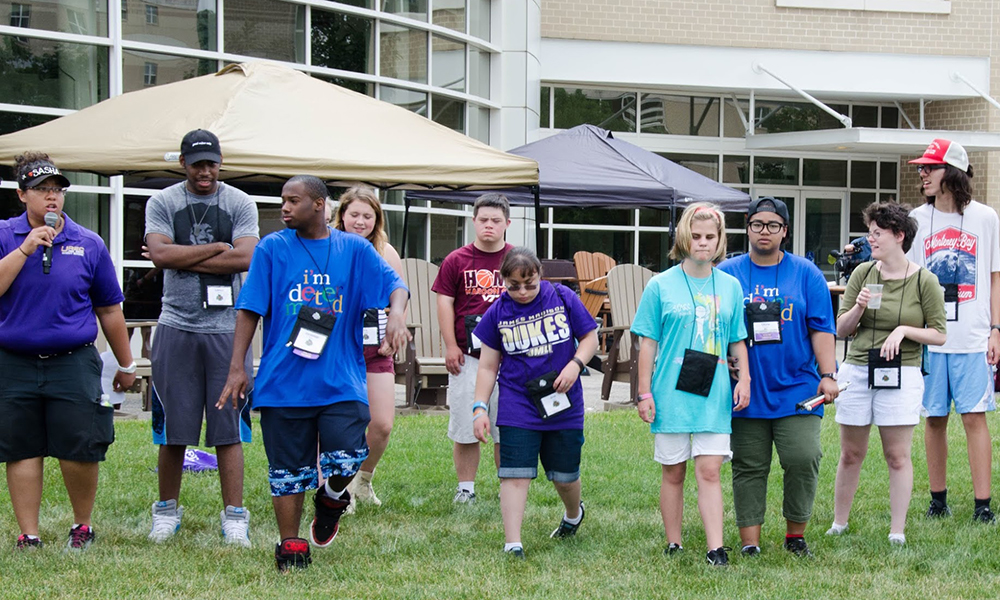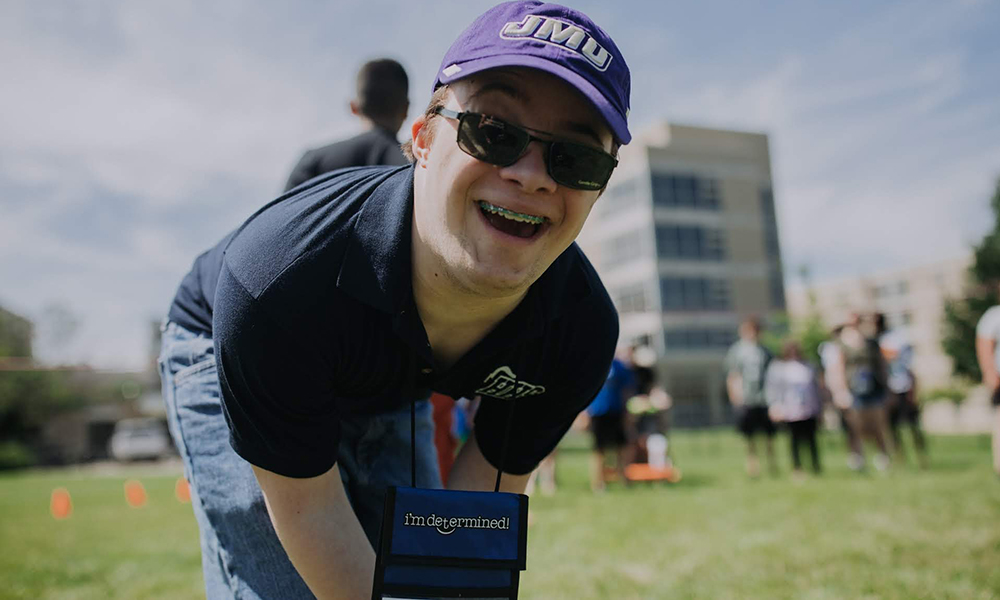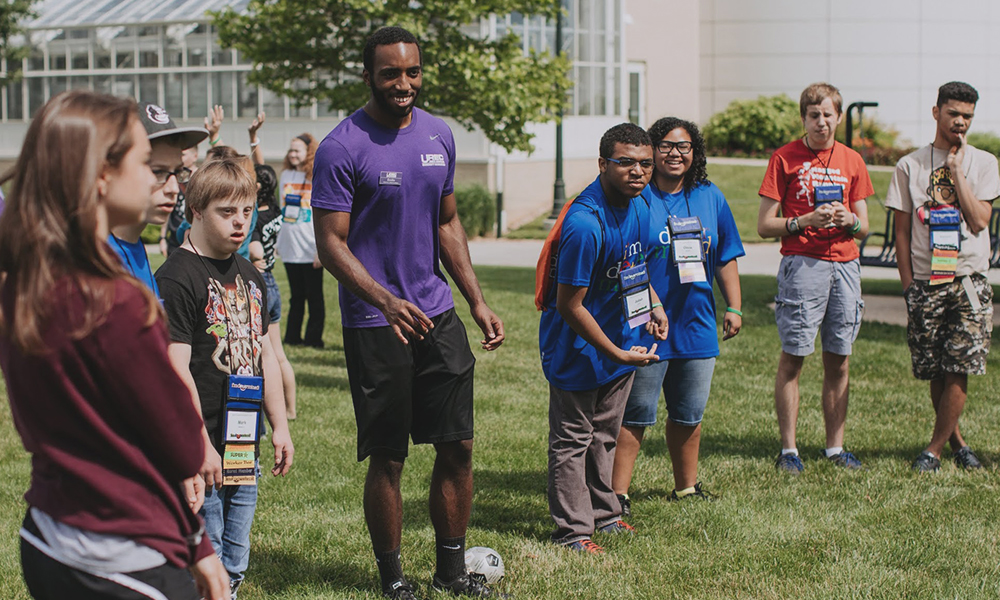CHBS students collaborate on ‘I’m Determined’ project
NewsBy: Brittany Bell
Creative Services Student Writer

Each summer, the Partnership for People with Disabilities and the Virginia Department of Education’s (VDOE) ‘I’m Determined’ project holds a Youth and Parent Summit for children with disabilities. The project focuses on making connections and teaching baseline skills for self-determination such as problem solving, decision making, self-efficacy and self-advocacy. Hosted by James Madison University, this annual two-day event provides service-learning opportunities for University Recreation Center employees and students in health and human services fields of study.
“The hope is that the two-day event isn’t just a place to have fun and build self-esteem,” said Kendal Swartzentruber, a Training and Technical Assistance Center (T/TAC) coordinator for the program. “While those things readily happen at the summit, the underlining goal is to create an environment where students are empowered to speak into their lives in ways that create new conversations in their communities.”
VDOE’s T/TAC program aims to improve the experience of students with disabilities in education systems state-wide. Swartzentruber, along with Jesse Rodriguez and Amanda Randall, are the T/TAC coordinators for the summit. JMU students assist in a variety of roles for the project, providing a better experience for the participants. Junior communication sciences and disorders student, Alaina Agatone, interns for the program.
“When I came in they had a really good foundation, but they wanted to grow ‘I’m Determined’ and its message through more advertisement of the summit,” said Agatone. Along with a new social media campaign, the interns have provided new ideas that connect with the youth.

During the Youth Summit, other students help the participants with the activities. Last year, psychological sciences student, Emily Knox, volunteered to assist a participant that was a wheelchair user and nonverbal. Knox was there throughout the day, but only helped as needed. Randall stresses that the assistants are there to help the participants if necessary, but should encourage them to try on their own.
“Working at the summit gave me ideas about how to teach some of these skills to the individuals that I currently work with,” said Knox. “It also reinforced how important it is to support the individuals I work with in learning how to advocate for themselves. Self-advocacy is a skill that can be taught and strengthened, and can look or mean something different to each individual.”
The activities during the summit are facilitated by UREC challenge course employees, who are specifically trained to teach team-building exercises. Youth leaders — returning participants who are chosen to lead the groups — participate in training prior to the event that includes completing the ropes course and challenge events. They use these skills during the summit to assist UREC staff when the youth participate in the same activities.

“Some of the activities are specifically for that team building aspect where we want them to collaborate and work together, but some of it is also about self-esteem,” said Rebekah Vanzo, an occupational therapy student who works at UREC. “With the ‘I’m Determined’ program, a lot of the participants face certain challenges that might get them down because society doesn’t always value their positive traits, so it’s a day to highlight all the things they can do rather than focusing on what they can’t.”
While the Youth Summit is an event that helps youth with disabilities by teaching them important life lessons, it also benefits the JMU students. Not only are students able to volunteer and get hands-on experience that help them with their future plans, but they learn about a population they might not otherwise be exposed to. Many volunteers admit that the event is an eye-opening experience that helps them see what it’s really like working with people with disabilities.
“I think my biggest takeaway has just been how creative and empowered some of these kids can be; how they can adapt to some of these activities,” Vanzo said. “It gives me a better idea for when I’m working with clients; they don’t need their hand held all the time, maximize their independence and let them go and figure things out.”

